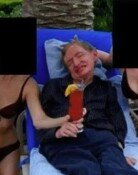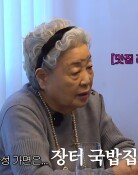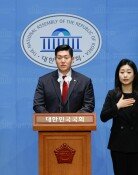Hotsellers Appeal to Consumer Psyche Amid Slowdown
Hotsellers Appeal to Consumer Psyche Amid Slowdown
Posted March. 02, 2009 06:39,
Some products sell well despite the global economic recession.
Products or services selling well despite the economic crisis are catering to the complicated mentality of consumers, according to a report by Samsung Economic Research Institute released yesterday.
Small luxury goods including watches, lipstick and phones are enjoying huge popularity among consumers who wish to feel the joy of owning name brands at cheaper prices.
Aigner watches at Gallery OClock priced at 500,000 won (330 U.S. dollars) to 600,00 (391 dollars) a piece is a hot seller seeing growing sales in the wake of Valentines Day and the back-to-school season.
With a growing number of young people using IT gadgets such as mobile handsets to replace traditional watches, the popularity of Aigner watches is considered an extraordinary phenomenon by industry insiders.
Kim Soo-gyeong, head of Dow, a PR firm specializing in fashion brands, said, People buy these goods instead of more expensive fashion items such as luxury bags or suits because they can feel the sense of luxury goods through items easily noticeable but relatively cheaper.
Samsung Economic Research Institute also said, Sales of expensive functional cosmetics have declined but those of high-end lipstick have increased, while demand for accessories, rather than expensive clothes, are also increasing for the same reason.
In the same context, the BeoCom2 telephone from Bang & Olufsen, the Danish luxury home entertainment system brand, has a waiting list of more than 200 people.
B&O brand manager Oh Yeong-hyeon said, The BeoCom2, priced at 1.79 million won (1,190 dollars), is relatively affordable compared with speaker systems or TVs that cost tens of millions of won per set.
Rentals of goods are also catching on due to consumers who wish to maintain their quality of living while spending less.
ORB, Japans leading provider of rental luxury goods, saw sales increase five times in December from the same period the year before. Nissans brand new sports sedan costs 35,000 yen (358 dollars) per day to rent, but weekend use requires the use of a lottery.
Woongjin Coway, which rents water and air purifiers and bidets, recorded 190.1 billion won (126 million dollars) in operating profit last year, up 17.9 percent from a year ago.
A company source said, We developed the water purifier market by launching rental service in 1998, when Korea was struggling amid the Asian financial crisis, and we are enjoying a second boom amid the economic recession.
The economic recession has also changed suppliers gifts for consumers to more practical items, including cash and daily necessities.
LG Electronics is holding a sweepstakes for buyers of certain models of its air conditioners, through which it pays one million won (651 dollars) each to 100 winners of a lottery. By considering the economic recession, we can present gifts that provide consumers with practical benefits, and consumers are highly enthusiastic, the company said.
For the same reason, home shopping malls have held events to give away boxes of instant noodles to shoppers, and have seen a far better than expected response from consumers.
Certain companies have managed to increase sales while maintaining consumer loyalty by consolidating brand identity despite the economic slump. S Solezia, a womens fashion brand, kept its strategy of providing moderately priced womens apparel while avoiding offers of inexpensive products. It raised sales 20 percent in January. While other companies are cutting pay, S Solezia has awarded bonuses to employees.
Jessie New York, a specialized brand of womens character apparel, is also seeing sales jump thanks to its strategy of offering distinguished design and reasonable prices. Company president Jeon Hee-joon said, We attained 35 billion won (23.3 million dollars) in sales last year, and we target 42 billion won (27.3 million dollars) this year.
bookum90@donga.com jhk85@donga.com







